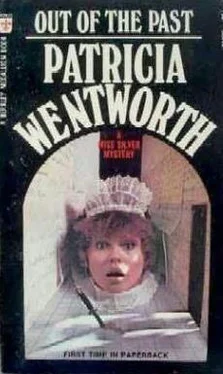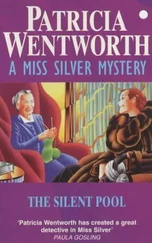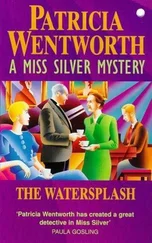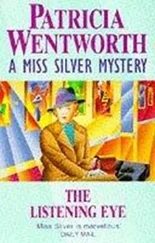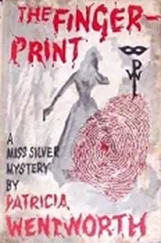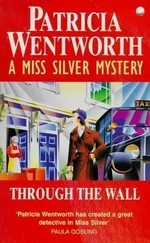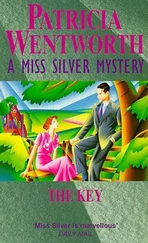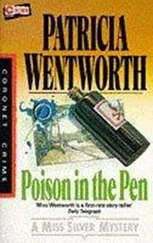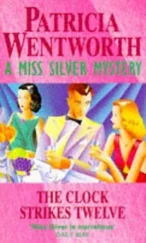“Was she?” Ethel Burkett’s tone was one of surprise.
“Oh, yes, my dear. That nice Mrs. Field who is staying at Cliff Edge was telling me about her. You remember Miss Anning introduced us, and down on the beach I have been able to help her once or twice when she was in difficulties with her knitting. She does not find it at all easy to keep her stitches on the needles, and I have been trying to teach her the continental method of holding them. It makes a dropped stitch almost impossible, but I am afraid she is not at all an apt pupil.”
Ethel Burkett was not interested in Esther Field as a knitter. She said,
“And she told you about Miss Anning?”
“Oh, yes. The Fields used to take a house down here every year. Her husband was quite a famous artist, but he has been dead for some years. They knew the Annings quite well, and she said how much Darsie Anning had changed from the pretty, lively girl she used to be. You know, my dear, I have frequently had occasion to remark that it is just these gay, spirited girls who are apt to become repressed and over strict in middle life. It seems strange, but I have seen it happen.”
“Perhaps they go too far, and find out that it doesn’t do,” said Ethel Burkett.
Later on that evening Miss Silver paid her accustomed visit to Mrs. Anning. She was, as usual, engaged upon the piece of embroidery which had been begun before her illness, and which never seemed to come any nearer to completion. A spray of wild roses in one corner had been very nearly finished, but the bow of blue ribbon with which it was tied was no more than an outline. It was upon this bow that Mrs. Anning worked continually, drawing a needle full of pale blue silk through the fine canvas. There was no knot on the end of the silk, so that it just went in and came out again, but it kept her happy for hours at a time. She would occasionally give a kind of half attention to the wireless, but there was always a risk of there being something in the programme which disturbed her. Miss Silver could see at a glance that something had disturbed her tonight. The hand that plied the embroidery-needle was shaking, and the usually fair placid face was puckered into lines of distress. She looked at Miss Silver and said in a troubled voice,
“Darsie doesn’t come. She doesn’t tell me anything. She sent that foreign girl up with my supper. Nobody tells me anything, but I know he is here.”
“Someone whom you wanted to see?” enquired Miss Silver. She took a chair and leaned forward to look at the embroidered roses. “What a pretty pattern, and how well you have carried it out.”
Mrs. Anning made a stitch and pulled the blue silk through.
“I heard his voice,” she said. “We don’t talk of him because of what happened. Darsie used to be so pretty and bright- but we don’t talk about it now.”
Miss Silver had begun to knit. She said very kindly,
“It is always better not to recall unhappy things. There are happy memories too, are there not, and pleasant things that happen from day to day?”
Mrs. Anning gazed at her in a piteous manner.
“I was so fond of him. We all were. And Darsie was so pretty-”
At about this same time or a little later Alan Field stepped out of the French window which led from the drawing-room at Cliff Edge and, turning, spoke over his shoulder.
“It’s a great deal cooler out here. Lovely breeze. You are missing all the best of it in there. Why not come out?”
The meal had been a dreary affair. Esther looked as if she had been crying. She probably had, but there really wasn’t any need to let everyone know about it. Quite unnecessary for the modern woman to show more of her original face than she wanted to. But of course Esther had no social tact. Then, as if those pink eyelids and her silent air of reproach were not enough, there was old Trevor’s hard stare and Lady Castleton’s quite extraordinary capacity for imparting a chill to the atmosphere. He had never liked her, in spite of her looks. After all, a woman needs something besides beauty, and she had always been much too inclined to throw her weight about. He preferred a more feminine type. And if she thought she could take this glacial line with him, she would just have to sit down and think again. There might be a good deal less of her high-and-mightiness by the time he was through with her. Carmona too. What business had she to sit there at her own table in what almost amounted to complete silence? More attractive than she used to be, and perfectly composed, but scarcely saying a word. If it hadn’t been for himself and Pippa, with old Maisie Trevor’s constant trivial flow in the background, they might have passed for a company of ghosts. The prospect of just sitting round in that cluttered drawing-room was too much for him. Make a move to the terrace, and there was always a possibility of breaking the party up.
Since no one answered his invitation, he repeated it.
As far as Colonel Trevor was concerned, you took your exercise in the open air, and when you had taken it you came into the house and sat down in a civilized manner. He observed stiffly that he had not yet read the Times, and left it at that.
Esther Field said,
“I think not, Alan.”
Carmona said nothing at all.
To everyone’s surprise, Adela Castleton rose to her feet.
“It is rather hot in here,” she said. As she moved towards, the window, Esther Field spoke in a shaky voice,
“Adela, do you think-should you not have a wrap? Is it really wise?”
She had leaned sideways to catch at the folds of a floating skirt. Adela smiled down at her with an air of assurance.
“Oh, yes, Esther.”
Esther Field let go of the filmy stuff.
Lady Castleton came out upon what was by day a singularly hideous terrace adorned with a number of massive urns. In the evening light the effect was softened, the harsher outlines blurred. The old figureheads in the garden below loomed up with a certain air of mystery. The sea beyond the cliff had begun to darken. In an hour or two the breeze would carry a chill. Now it was a breath of enchantment.
Adela Castleton said,
“You are quite right-the air is delightful. Shall we go down towards the sea?”
There were steps that led to the garden. She moved towards them, catching up her floating black. Alan followed her, puzzled. It was quite obvious that she wished to speak to him. A great many women had had the same wish in the past, and had made some such opportunity.
A light breeze after a hot day, dusk and the scent of flowers or the tang of the sea-there was nothing he didn’t know about it. But Adela Castleton-that did puzzle him.
When they were about half way down the garden, its cement paths still giving out the heat, she stopped and said in an authoritative manner,
“You have been upsetting Esther. Is that what you came back for?”
He was lighting a cigarette, its red tip glowed. He put away the packet before he answered her. Then he said,
“You are a good friend. Of course anyone could see she had been crying-but you know, she cries very easily. We had been talking about my father.”
“Yes, I know that. I also know what you said to her.”
He blew out a little cloud of smoke.
“Oh-she told you?”
“Yes, she told me. I went into her room before dinner and found her crying bitterly.”
“About this Life of my father? I naturally don’t want her to be distressed about it, but if there is to be a Life at all, it must be a faithful one. My father had a good many sides to his character. The side Esther knew wasn’t the only one. He was very fond of her-who wouldn’t be-but she was not the only woman in his life.”
“I suppose not. Do you really mean to make that public?”
Читать дальше
